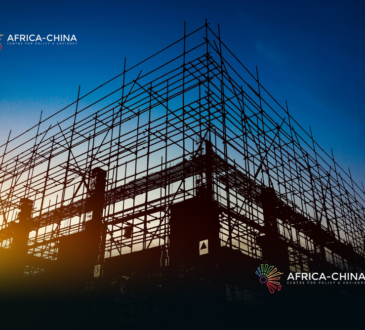
In an era of TikTok likes and Instagram reels, reality can often be deceptive. You may step out of your house as a normal person and go to bed, social media famous or even, infamous. An avenue through which social media provides for this simultaneous creation of heroes and villains is through prank culture.
In Ghana, people who work in emergency services have borne the brunt of prank culture.
This includes the police, fire service, and the ambulance services. In 2023 alone, the Ghana Fire Service recorded over 656,996 prank calls from the public (GNA, 2024). This is not a mere joke as the Fire Service has stated, but the implications are far reaching. Prank calls waste the time of the officials, their fuel, their money and put people in actual need of help at risk.
Unfortunately, prank culture continues to evolve, spurred on by a desire for social media validation. A simple search of the hashtag “prank” yields 1.1 million results on Instagram and about 140.9 billion views on TikTok. Some of these pranks are very wild with people entering into random homes, smashing people’s phones, and even physically attacking disabled people.
However, whether a joke is harmless or funny mainly depends on the one being made fun of, and sometimes, they do not find anything to laugh about. Recently, people are resorting to more physical and aggressive reactions to some of these pranks. Nonetheless, the law has certain avenues for seeking redress for things such as pranks and practical jokes. In fact, an entire branch of law exists for acts or omissions which cause harm to another party. This branch of law is known as the law of torts.
A tort is an act or omission that gives rise to injury or harm to another and amounts to a civil wrong for which courts impose liability. The provision in the law of torts for issues of practical jokes is espoused in Wilkinson v Downtown. In this case, a tenant named Mr. Downton decided to play a prank on his landlord’s wife Mrs. Wilkinson. He told her that the husband was involved in a terrible accident in which he had broken both his legs and that she needed to go in a cab with two pillows to pick him up. The lady suffered shock to her nervous system, vomiting and other physical ailments which her husband, who was never involved in any accident, had to bear the costs of treating. Mrs. Wilkinson sued for the emotional and physical harm she experienced, and the court held that Mr. Downton was liable. The principle resulting from the ruling in Wilkinson v Downton is that a person is liable if he/she willfully does an act calculated to cause physical harm, and physical harm results.
This principle was later applied to another case known as Janvier v Sweeney where two private detectives used false statements and threats to try and get Janvier, a maid servant, to show them certain documents. These statements caused Janvier to suffer a nervous shock. She sued for damages and based on Wilkinson v Downton, she won her case.
Under Ghanaian law, the principle from Wilkinson v Downton is aptly captured in Section 69 of the Criminal Offences Act 1960 which states that intentionally and unlawfully causing harm to a person constitutes a second-degree felony. The Act also has provisions for actions that cause damage to property. For example, snipping off the wires on someone’s earpiece or smashing their phone may constitute an offence under Section 172 (1) of the Criminal Offences Act. This section states that whoever intentionally and unlawfully causes damage to any property by any means commits an offence which, depending on the value of the object in question, may constitute a misdemeanor or a second-degree felony. Threats to cause harm are also misdemeanors according to section 74 of the Act.
What legal actions are available to you if you’ve been pranked? In Ghana, the primary remedy for civil wrongdoings is damages. Damages refers to the amount of money paid to the aggrieved party which is meant to compensate them for the act that was performed. Damages are meant for restitutio in integrum. This means that the damages are meant to restore the aggrieved party to their original position i.e.. where they would be had the act not been performed. There are mainly two categories of damages that exist: general damages and special damages. General damages are damages that the law presumes to have resulted from the defendant’s tort whereas special damages are those that the law does not presume but which the plaintiff can plead for as part of their compensation.
So next time you are tempted to cut the wires off someone’s earpieces or throw a fake snake on them to elicit a reaction for a few likes and comments, it may be wise to consider your account balance because some jokes are very expensive.
ABOUT THE AUTHORS
Prince A. Acquaye is the Managing Partner at Corporate and Allied Attorneys, a dynamic law firm in Ghana. He specializes in corporate governance, intellectual property, immigration, general corporate commercial, data protection and M&A.
Andrew Darke is a final year student at Ashesi University pursuing a degree in Business Administration. He has a passion for writing and learning new languages. He is a resourceful and reliable team player with a keen interest in data analytics.
References
GNA. (2024, January 3). Fire Service received 656,591 prank calls in 2023. Ghana News Agency. https://gna.org.gh/2024/01/fire-service-received-656591-prank-calls-in-2023/







